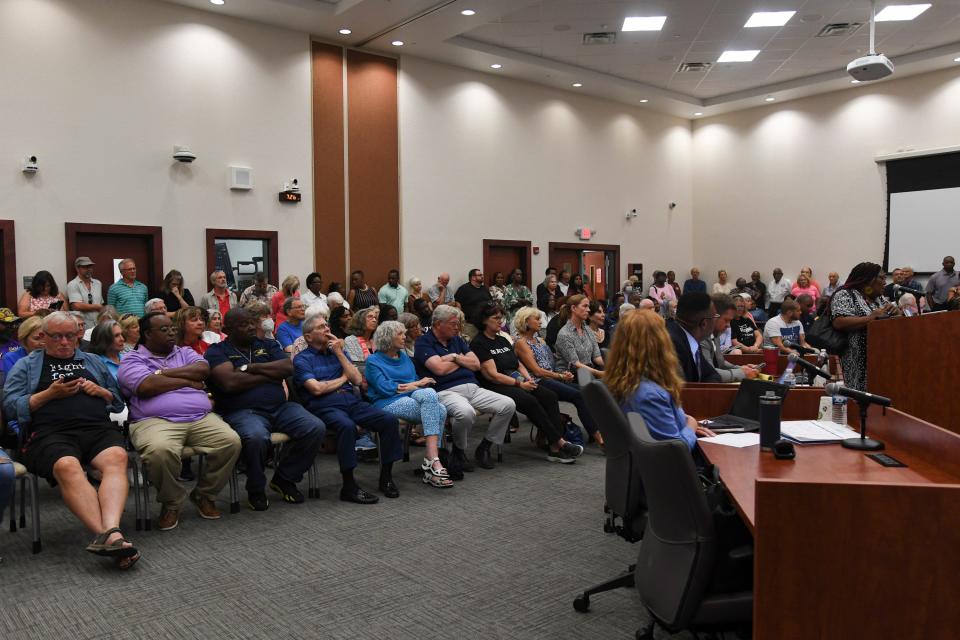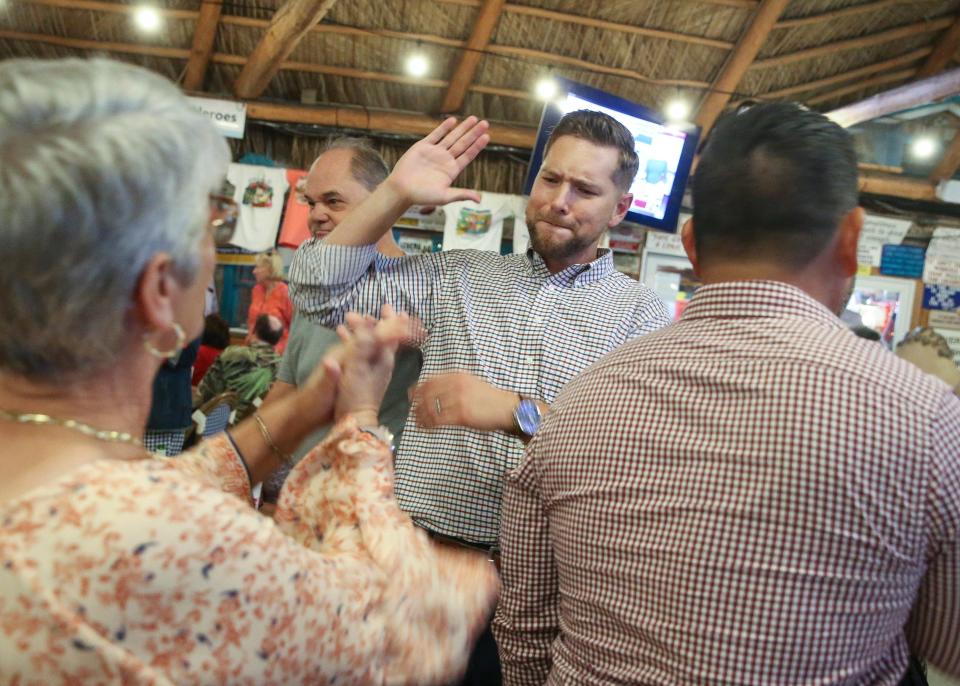Don't bring 'dangerous vice' of partisanship back to Florida's school board elections
No matter which side of the political fence you sit on, let's agree our founding fathers got a lot of things right when they developed a framework for our national government.
They may not have anticipated every problem our republic would face, but they came together on a set of guiding principles that have served our nation well for more than two centuries and are a model for those seeking freedom around the globe.
But you know what the founding fathers didn't like? Political parties.
Alexander Hamilton, the main character in that popular musical, once called political parties "the most fatal disease" of popular governments.
James Madison, that guy who has a university in Virginia named after him, wrote in the Federalist Papers that political parties, or "factions" as they were sometimes called back then, were a "dangerous vice" and one of the goals of "a well-constructed union" should be "its tendency to break and control the violence of faction."
Those aren't isolated examples. Overall, our founders seemed to view political parties as vestiges of the government they were seeking to replace.
So, if we're interested in following the founders' advice about the best way to run a government, we should be looking at ways to make our political system less partisan, not more.

OpinionWhen's nonpartisan race nonpartisan? Hard to tell on Treasure Coast these days
OpinionFlorida school board races are supposed to be nonpartisan; keep them that way
More:Moms for Liberty: 'We are a nonprofit, nonpartisan grassroots organization'
Unfortunately, a bill pending in the Florida Legislature would be a step in the opposite direction. House Joint Resolution 31 (Senate Joint Resolution 94) would put a constitutional amendment before Florida voters to make local school board races partisan.
Voters decided in 1998 nonpartisan races for school board seats made more sense. It's a system that's been working well for nearly a quarter century since its adoption.
Last year, Gov. Ron DeSantis took the highly unusual step of endorsing candidates in various school board elections around the state. We didn't agree with his decision to do that, but 25 of the 30 candidates he backed won seats.
Apparently, though, that wasn't good enough for some legislators, who say having school board candidates identify as Republicans, Democrats or something else would help voters better understand their values and beliefs.
State Rep. Spencer Roach, R-North Fort Myers, the bill's sponsor in the House of Representatives, said partisan affiliations can tip voters off to the stances candidates might take on issues like school curriculum and choice, "bathroom issues" and "young boys playing on girls sports teams."
There's a better way to find out where candidates stand on those and other topics: Just ask them. After all, declaring oneself a Democrat or a Republican is no guarantee a candidate is going to fall in lockstep with his or her party platform on every issue, anyway.
Or it shouldn't.
It's lazy thinking to assume all candidates will. And it also leads to a more serious problem with further politicizing school boards: Just as there is no Republican or Democratic way to pave a pothole, the two parties' platforms don't cover all of the numerous and complex issues involved in educating our children.

Take the issue of school start times for high school students as one small example. Does either party have a plank in its platform addressing that?
So if we fill our school boards with a bunch of political hacks who lack the ability to think on their own, we're asking for trouble.
And here's another point about why partisan elections are problematic: Suppose a school board member had research suggesting later start times would better suit learning among teenagers. But if that school board member belonged to the party out of power, his or her ideas might be dismissed for political reasons even if students would clearly benefit.
Oh yeah, making school board races partisan would also disenfranchise more than 4 million registered Florida voters (about one in three) who have declared no or minor party affiliation and don't participate in primary elections.
Partisan elections for school board members won't lead anywhere good. The system we've had in place since the start of this millennium isn't broken, so there's no need to "fix" it.
Editorials published by TCPalm/Treasure Coast Newspapers are decided collectively by its editorial board. To respond to this editorial with a letter to the editor, email up to 300 words to TCNLetters@TCPalm.com.
This article originally appeared on Treasure Coast Newspapers: Let's keep partisan politics out of Florida's school board elections

